From the shadows of Gaza’s alleys to the open skies above, Israel’s military campaign is powered by some of the most advanced and controversial battlefield systems in the world. These war machines, ranging from heavily armored tanks to precision-guided drones, form a devastating arsenal tailored for urban warfare.
Each plays a deadly role: the Merkava Mk 4M leads tank assaults with near-immunity to missiles, the D9R bulldozer clears entire neighborhoods, and the Hermes 900 UAV directs artillery with pinpoint accuracy. While these platforms are engineered for efficiency and survivability, they’re also central to the high civilian toll in Gaza’s dense urban terrain. Armed with cutting-edge tech like Trophy
Active Protection, laser-guided mortars, and autonomous missile platforms, Israel’s warfighting strategy blends brute force with surgical precision. This list breaks down the most lethal vehicles and systems in Israel’s arsenal—how they work, why they’re deadly, and the controversial impact they’re having on the battlefield.
1. Merkava Mk 4M Main Battle Tank
- Role: Urban assault and tank warfare
- Why It’s Deadly: Equipped with the Trophy Active Protection System to intercept RPGs and ATGMs. 120mm cannon with precision fire control. Often used in close urban combat with infantry support.
- Impact in Gaza: Leads armored incursions, engages enemy strong points, and provides fire support in dense city terrain.
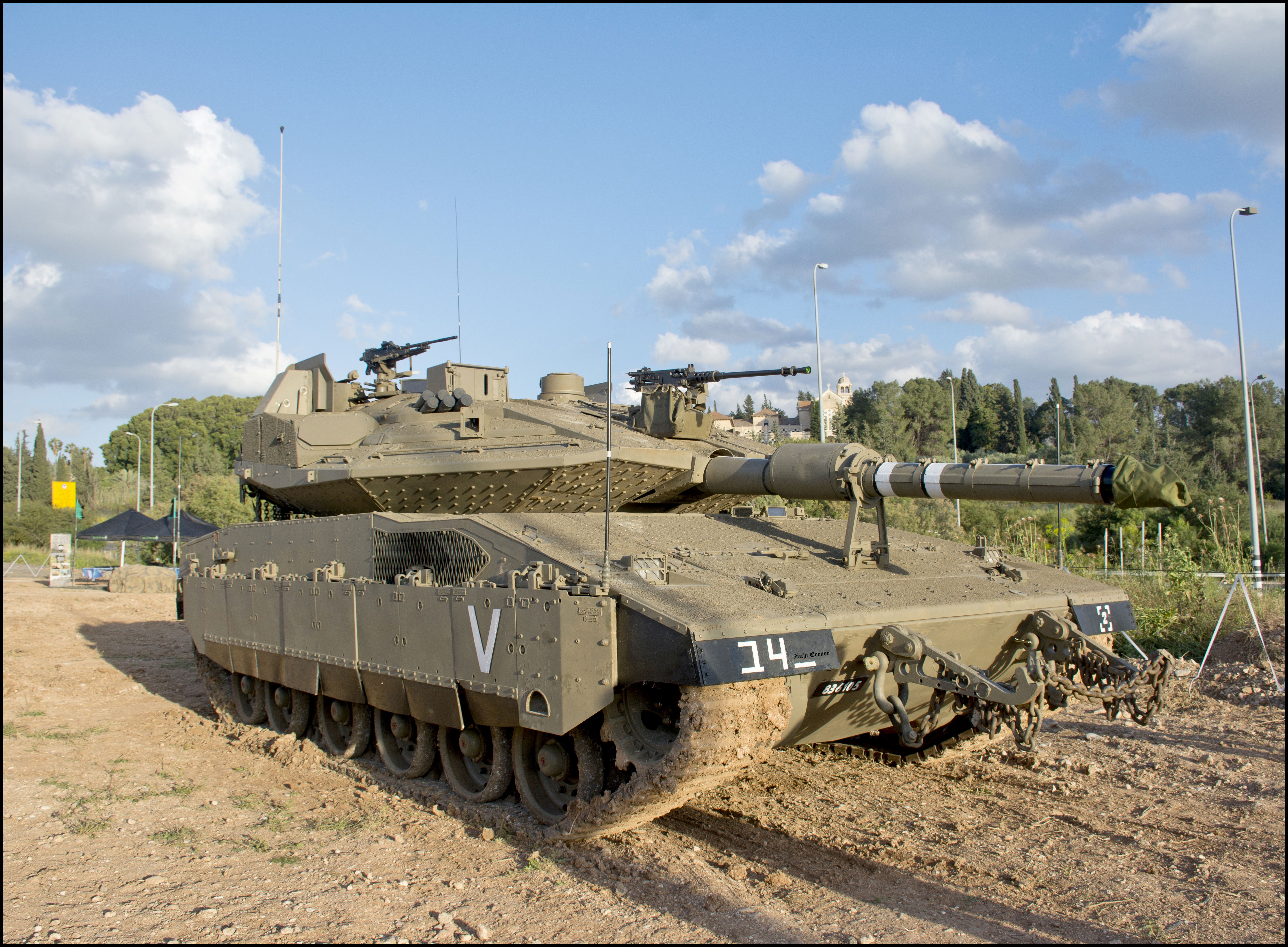
The Merkava Mk 4M is Israel’s most advanced main battle tank, purpose-built for urban warfare like that seen in Gaza. Outfitted with the Trophy Active Protection System, it can intercept incoming RPGs and anti-tank missiles in real time.
Its 120mm smoothbore cannon delivers pinpoint firepower, while modular armor maximizes crew survivability. The rear compartment can carry infantry or wounded soldiers, enhancing battlefield versatility. Integrated sensors, thermal imaging, and networked combat systems allow for superior situational awareness.
In Gaza, the Merkava Mk 4M leads armored assaults, smashes fortified positions, and offers precision support in dense, hostile environments with unmatched lethality. Critics highlight its role in high civilian casualties due to indiscriminate shelling in dense areas. A devastating yet controversial centerpiece of Israel’s Gaza operations.
2. Namer Armored Personnel Carrier
- Role: Heavy troop transport
- Why It’s Deadly: Heavily armored, based on Merkava chassis. New variants feature 30mm automatic cannons and Trophy APS.
- Impact in Gaza: Transports infantry safely through hostile areas while providing suppressive fire.

The Namer Armored Personnel Carrier is one of the heaviest and most protected APCs in the world, built on the Merkava tank chassis. Designed for frontline combat in Gaza’s urban terrain, it offers unmatched troop protection with advanced modular armor and the Trophy Active Protection System.
Recent variants include a remote-controlled 30mm cannon and Spike missile launchers, turning it into a lethal infantry fighting vehicle. Capable of carrying up to 12 fully equipped soldiers, the Namer ensures rapid, secure deployment under fire.
Praised for survivability, it’s also criticized for enabling rapid assault deployments in urban areas, contributing to Gaza’s high civilian and combatant casualties. A deadly force multiplier in Israel’s ground operations.
3. D9R Armored Bulldozer ("Doobi")
- Role: Combat engineering and psychological warfare
- Why It’s Deadly: Used to destroy tunnels, barricades, and buildings. Impervious to most weapons thanks to heavy armor. Equipped with machine guns for self-defense.
- Impact in Gaza: Crucial in leveling terrain, clearing explosives, and collapsing Hamas tunnel networks.

Israel’s D9R (based on the Caterpillar D9) is a heavily armored bulldozer used extensively in Gaza for combat engineering and urban demolition. Protected by layered steel plating and bulletproof windows, it withstands small arms fire, RPGs, and IEDs.
Its 15-ton blade and ripper claw demolish buildings, clear roads, and create barriers, playing a key role in razing Hamas tunnels and flattening neighborhoods. Critics accuse it of indiscriminate destruction, contributing to mass displacement.
Nicknamed "Doobi" (teddy bear) by troops, it’s a fearsome symbol of Israel’s devastating ground campaigns - clears mines, booby traps, rubble, and enemy fortifications, and is frequently used to destroy tunnel entrances. Its psychological impact is significant. In Gaza’s dense urban terrain, the D9R paves the way for troops and armored units under extreme conditions.
4. Eitan 8x8 Armored Fighting Vehicle
- Role: Infantry mobility and combat
- Why It’s Deadly: Highly mobile wheeled platform. Can be equipped with 30–40mm guns and missiles. Trophy APS-ready.
- Impact in Gaza: Deploys infantry rapidly and safely across conflict zones.

The Eitan 8x8 Armored Fighting Vehicle is Israel’s first wheeled APC designed for speed, protection, and versatility in urban combat zones like Gaza.
Faster and more mobile than tracked vehicles, it reaches speeds over 55 mph and operates efficiently on paved roads and rough terrain. Its modular armor provides robust protection, while newer variants feature a 30mm automatic cannon and the Trophy Active Protection System.
Able to carry 9 troops, the Eitan allows rapid deployment and maneuverability in congested areas. Combining firepower, survivability, and agility, the Eitan enhances infantry support during fast-paced, high-risk missions in complex battle environments.
5. Spike Missile Launch Platforms (NLOS, ER, LR versions)
- Role: Precision anti-armor and anti-personnel
- Why It’s Deadly: Can be launched from multiple platforms (vehicles, helicopters, tripods). Fire-and-forget or man-in-the-loop guidance. Pinpoint accuracy with devastating effect.
- Impact in Gaza: Used to target fortified enemy positions and vehicles with minimal collateral damage.
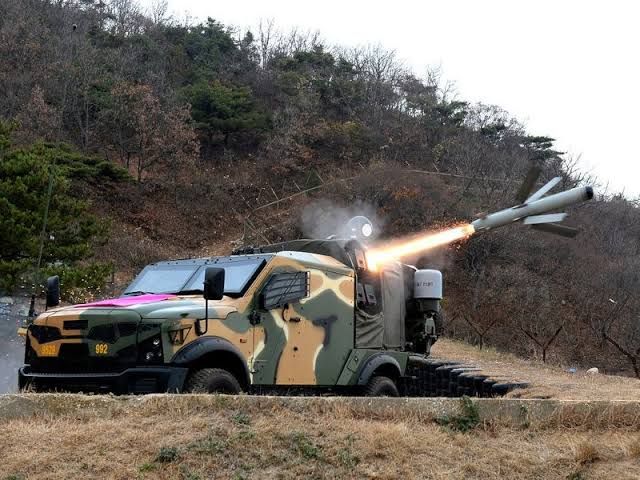
Spike missile launch platforms—especially the NLOS (Non-Line of Sight), ER (Extended Range), and LR (Long Range) variants—are precision strike systems used extensively by Israeli forces in Gaza.
Deployed from ground vehicles, helicopters, and static positions, these fire-and-forget or man-in-the-loop guided missiles strike targets with pinpoint accuracy up to 25 kilometers away. The NLOS version can engage hidden or fortified positions without direct visual contact, ideal for dense urban warfare.
Spike missiles are lethal against bunkers, vehicles, and personnel, minimizing collateral damage. Their versatility, stealth, and precision make them a cornerstone of Israel’s tactical response in asymmetric urban conflict zones.
6. M109 Doher (Self-Propelled Howitzer)
- Role: Long-range artillery support
- Why It’s Deadly: 155mm shells deliver powerful indirect fire. Modernized for GPS-guided targeting.
- Impact in Gaza: Softens targets and provides suppression fire before or during ground operations.
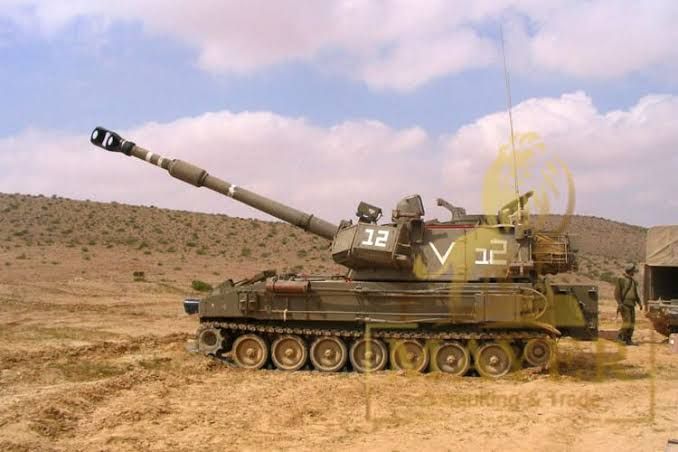
The M109 Doher is Israel’s upgraded version of the American M109 self-propelled howitzer, providing powerful indirect fire support during operations in Gaza.
Armed with a 155mm cannon, it can strike targets up to 30 kilometers (19 miles) away with conventional rounds and even farther with precision-guided munitions. Enhanced with Israeli-made fire control systems, GPS targeting, and faster reload capabilities, the Doher delivers sustained, accurate barrages.
Operating from behind the front lines, it’s crucial for softening enemy defenses, suppressing rocket launch sites, and supporting ground advances. Its mobility and armored protection allow it to reposition quickly while staying shielded from counterattacks.
7. Iron Sting Precision-Guided Mortar System
- Role: Urban precision fire support
- Why It’s Deadly: 120mm laser/GPS-guided mortar rounds. Low collateral damage with high strike accuracy.
- Impact in Gaza: Used in tight urban zones where artillery would be too imprecise.

Israel’s Iron Sting revolutionizes urban warfare in Gaza as the world’s first GPS/laser-guided 120mm mortar system. This cutting-edge precision-guided mortar system is designed to deliver highly accurate firepower in dense urban environments like Gaza.
Mounted on mobile platforms, it fires 120mm GPS- and laser-guided mortar rounds capable of striking within meters of designated targets while minimizing collateral damage. Unlike traditional mortars, Iron Sting combines artillery-level precision with mortar flexibility, making it ideal for engaging enemies hidden among civilian structures.
It’s particularly effective against fortified positions, small vehicles, and personnel. Integrated with real-time targeting data, Iron Sting enhances the IDF’s ability to conduct surgical strikes with deadly efficiency in complex combat zones.
8. ELM-2084 Radar + Mobile Iron Dome Launchers (Tamir missile batteries)
- Role: Air defense and guided strike platform
- Why It’s Deadly: Originally for missile interception, but increasingly integrated with ground-to-ground strike support systems. Precision engagements against mobile or airborne threats.
- Impact in Gaza: Protects ground units from rockets, while mobile versions assist with tactical coordination of precision strikes.
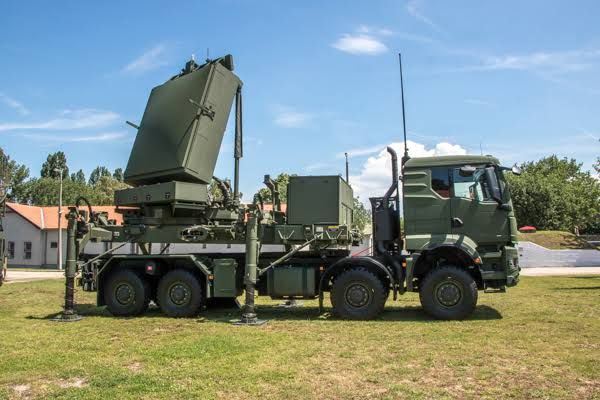
Israel’s ELM-2084 radar and Iron Dome system form a lethal defensive network in Gaza, detecting and intercepting rockets with 90%+ success rates. The multimission radar tracks hundreds of threats simultaneously—from mortars to UAVs—while Tamir missiles launch from mobile units to destroy incoming projectiles mid-air.
Though designed as defensive shields, these systems enable Israel’s offensive operations by neutralizing Hamas’ rocket capabilities and protecting troop movements. Critics argue their deployment perpetuates asymmetric warfare, as Gaza’s militants lack equivalent protection against Israeli airstrikes—turning a life-saving shield into a strategic enabler of prolonged conflict.
9. ATMOS 2000 Self-Propelled Howitzer
- Role: Fast-deployable artillery
- Why It’s Deadly: 155mm gun with long-range precision capability. High mobility allows repositioning to avoid counterattacks.
- Impact in Gaza: Used in coordinated barrages or single-target strikes in response to intelligence.
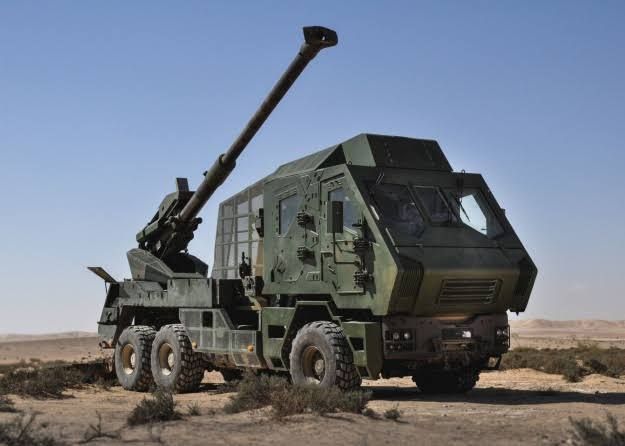
The ATMOS 2000 is a highly mobile, truck-mounted 155mm self-propelled howitzer used by Israel for rapid, long-range fire support in conflicts like the Gaza war. Its high rate of fire, up to six rounds per minute, and extended range of over 40 kilometers (25 miles) with rocket-assisted shells make it a formidable artillery asset.
Mounted on a 6x6 truck chassis, ATMOS offers exceptional mobility, allowing quick repositioning to evade counter-battery strikes. Integrated with advanced fire control systems and GPS targeting, it delivers precise, responsive firepower.
In Gaza, ATMOS is deployed to suppress enemy positions, neutralize threats, and provide flexible support for advancing ground forces.
10. Hermes 900 UAV + Ground-Based Launcher/Vehicle Integration
- Role: Surveillance, targeting, and strike coordination
- Why It’s Deadly: While not a vehicle itself, it operates alongside mobile launch/control vehicles. Real-time ISR (intelligence, surveillance, reconnaissance) paired with laser designation for artillery and missile strikes.
- Impact in Gaza: Identifies enemy movement and calls in precision fire on buildings or personnel.

The Hermes 900 UAV, integrated with mobile ground control and launcher vehicles, is a cornerstone of Israel’s aerial operations in Gaza.
This medium-altitude, long-endurance drone provides real-time intelligence, surveillance, and target acquisition (ISTAR) for up to 36 hours. Equipped with EO/IR sensors, synthetic aperture radar, and laser designators, it can identify and track targets with surgical precision.
Some variants are armed with guided munitions for precision strikes. Ground-based systems enable seamless communication, launch, and recovery in combat zones. In Gaza, the Hermes 900 enables coordinated strikes, battlefield awareness, and mission-critical targeting, drastically increasing the lethality and efficiency of IDF operations.